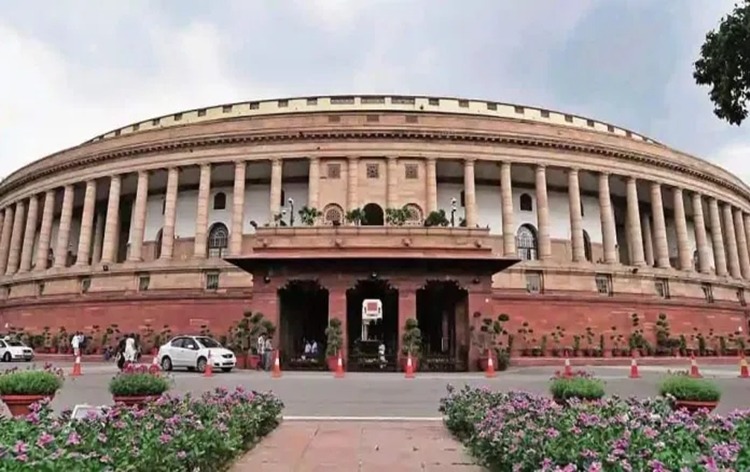The Lok Sabha on Wednesday passed the Constitution (One Hundred and Twenty-eighth Amendment) Bill, 2023 by 454 votes.
Two members belonging to the All India Majlis-E-Ittehadul Muslimeen (AIMIM) voted against the Bill, also known as the Women’s Reservation Bill, which would provide 33 percent reservation for women in the lower house, Legislative Assemblies of States and the Legislative Assembly of the National Capital Territory of Delhi.
Earlier on Tuesday, Union Minister of Law and Justice Arjun Ram Meghwal had introduced the Bill in the first Lok Sabha session at the new Parliament Building.
Speaking during the Special Session of Parliament, Prime Minister Narendra Modi said the goal of this bill (Nari Shakti Vandan Adhiniyam) was to increase the participation of women in Parliament and State Legislative Assemblies.
Calling it a historic moment, the Prime Minister said the Union Cabinet has had a lot of discussion over the Bill for several years. But finally on Monday, during a Cabinet meeting, the National Democratic Alliance (NDA) government approved the bill, he added.
As per the proposal, women reservation will take effect after the delimitation exercise following the first census after the Bill becomes a law. The reservation for women will come to an end after 15 years from the date of its commencement.
Earlier in May 2010, the United Progressive Alliance (UPA) government had introduced the Constitution (One Hundred and Eighth Amendment) Bill, 2008 to reserve one-third of all seats for women in the Lok Sabha and the state Legislative Assemblies. Though the Bill was passed in the Rajya Sabha, it lapsed after the Lok Sabha did not vote for the same.
The 2008 bill proposed amendments to three constitutional provisions – Article 239AA (Special provisions with respect to Delhi), Article 331 (Representation of the Anglo-Indian community in the House of the People), and Article 333 (Representation of the Anglo-Indian community in the Legislative Assemblies of the States). Additionally, it introduced three new articles, namely Articles 330A, 332A, and 334A.
The first two newly-proposed articles sought to introduce reservation for women in Lok Sabha and the state legislative assemblies, while the last article contained a sunset clause for this affirmative policy to be phased out after a period of 15 years.
A crucial difference between the earlier bill and the constitutional amendment bill that has now been introduced is that it is proposed to be enforced after an exercise of delimitation is undertaken for the purpose following the first census after the enactment of the bill, although the sunset clause has been retained.
Provisions relating to reservation for the Anglo-Indian community have also been left undisturbed, unlike in the previous bill, which sought to amend Articles 331 and 333. Both bills feature provisions for horizontal reservation, cutting across various quota categories.
Specifically, one-third of the seats allocated for the Scheduled Castes and the Scheduled Tribes in the Lok Sabha and Legislative Assemblies are proposed to be designated for women from these communities.
Earlier on Monday evening, Union Minister of State for Food Processing Industries and Jal Shakti Prahlad Patel had shared the information on X (formerly Twitter), stating that the Union Cabinet has approved tabling of the women’s reservation bill in Parliament. However, the Minister deleted the post later.
Parliamentary Affairs Minister Prahlad Joshi had announced last month to hold a Special Session in September, without declaring its agenda. The agenda for the same was announced last week. The tentative schedule of the legislative business mentioned eight bills and the women’s reservation bill was not among them.
The Special Session kickstarted on Monday at the old Parliament Building with a discussion on India’s ‘parliamentary journey’ spanning 75 years, opened by Prime Minister Narendra Modi in the Lok Sabha and Union Minister Piyush Goyal in the Rajya Sabha.
Although there was no mention of the women’s reservation bill on the agenda, many politicians, cutting across party lines, sought its introduction and passage during the Special Session.
Some political parties even suggested reintroduction of the bill during an all-party meeting on the eve of the five-day Special Session, which commenced at the old Parliament Building on Monday.
The Modi government responded to the speculations by saying that a decision would be made at a suitable juncture.
The Supreme Court is currently seized of a public interest litigation (PIL) petition filed by the National Federation of Indian Women seeking reintroduction of the Constitution (One Hundred and Eighth Amendment) Bill, 2008.
As per NIFW, the Bill as well as its objectives enjoyed support from all political parties and the manifestoes of these parties had included the promise of passing the bill.
The petitioner contended that the government cannot be allowed to keep a bill, which has been passed by the Rajya Sabha and enjoys the support of a majority of mainstream political parties, hanging indefinitely on the pretext of further consideration and the need for consensus between political parties.
A Bench headed by Justice Sanjiv Khanna had in August this year questioned the Union government over its reluctance to file a response to this petition. The Apex Court had indicated that it would issue an order during the next hearing, while staying within the bounds of permissible judicial intervention.


